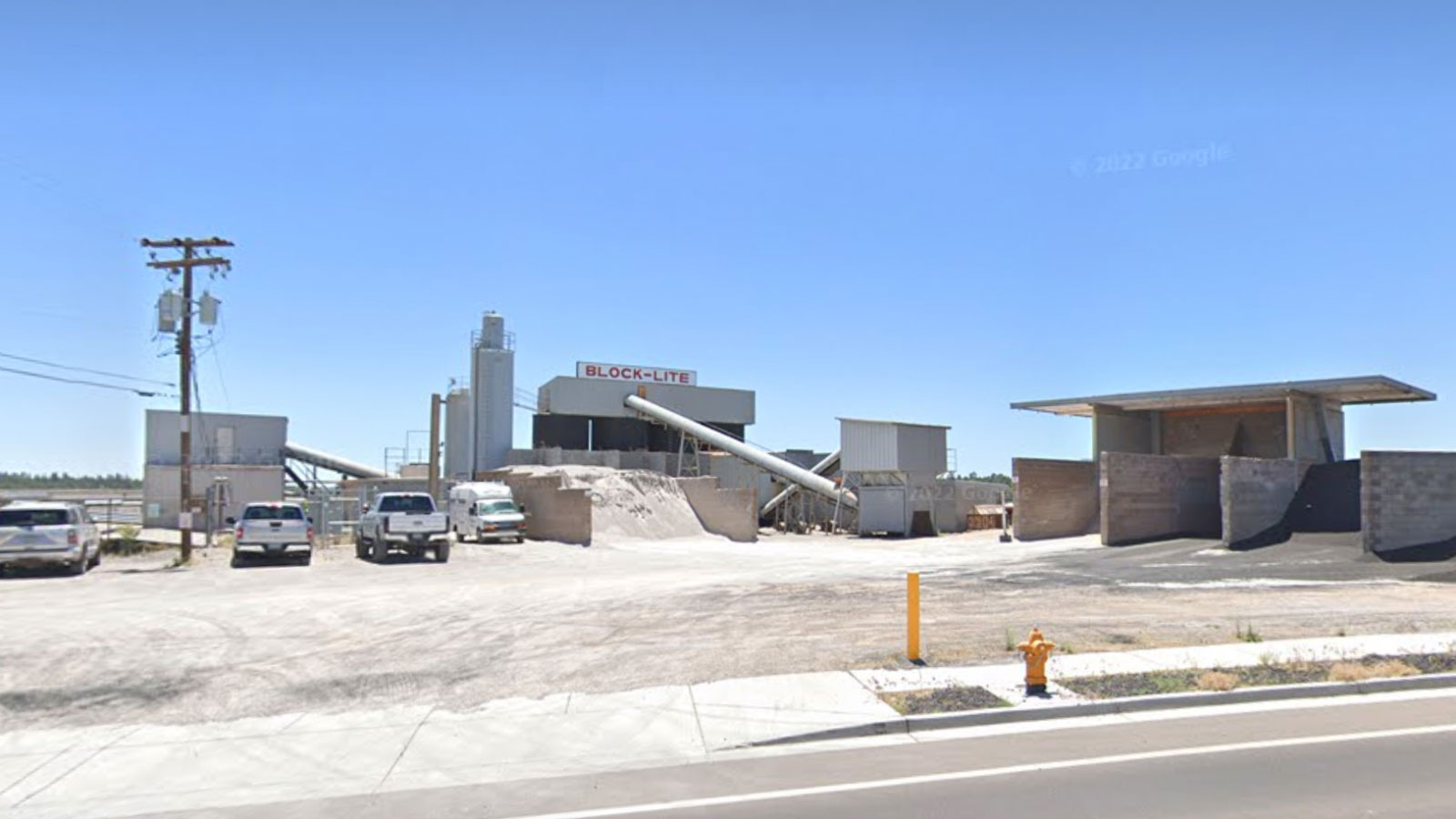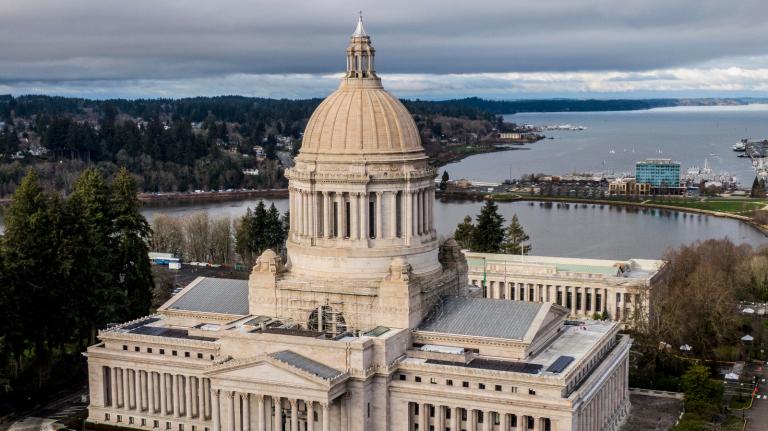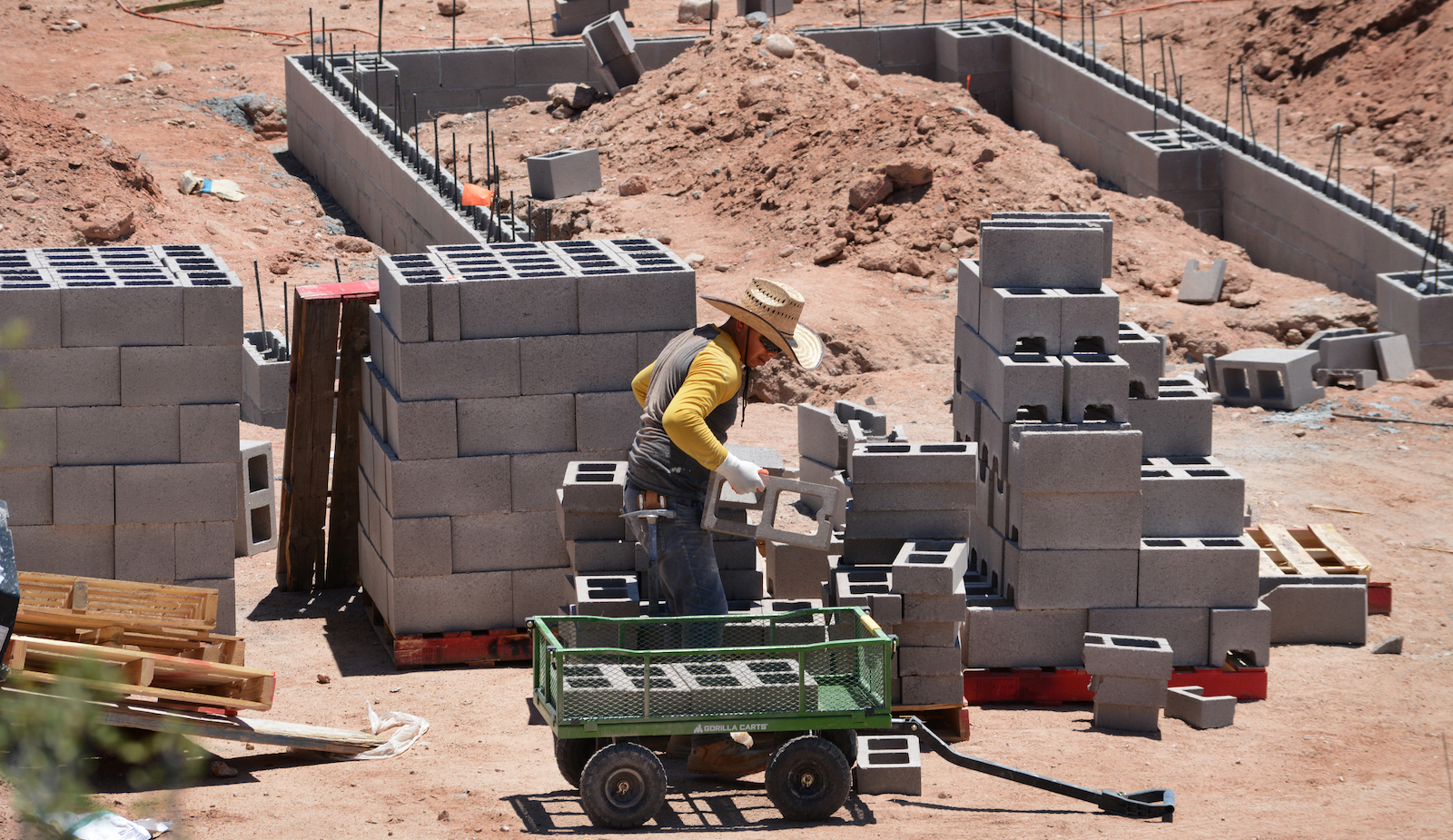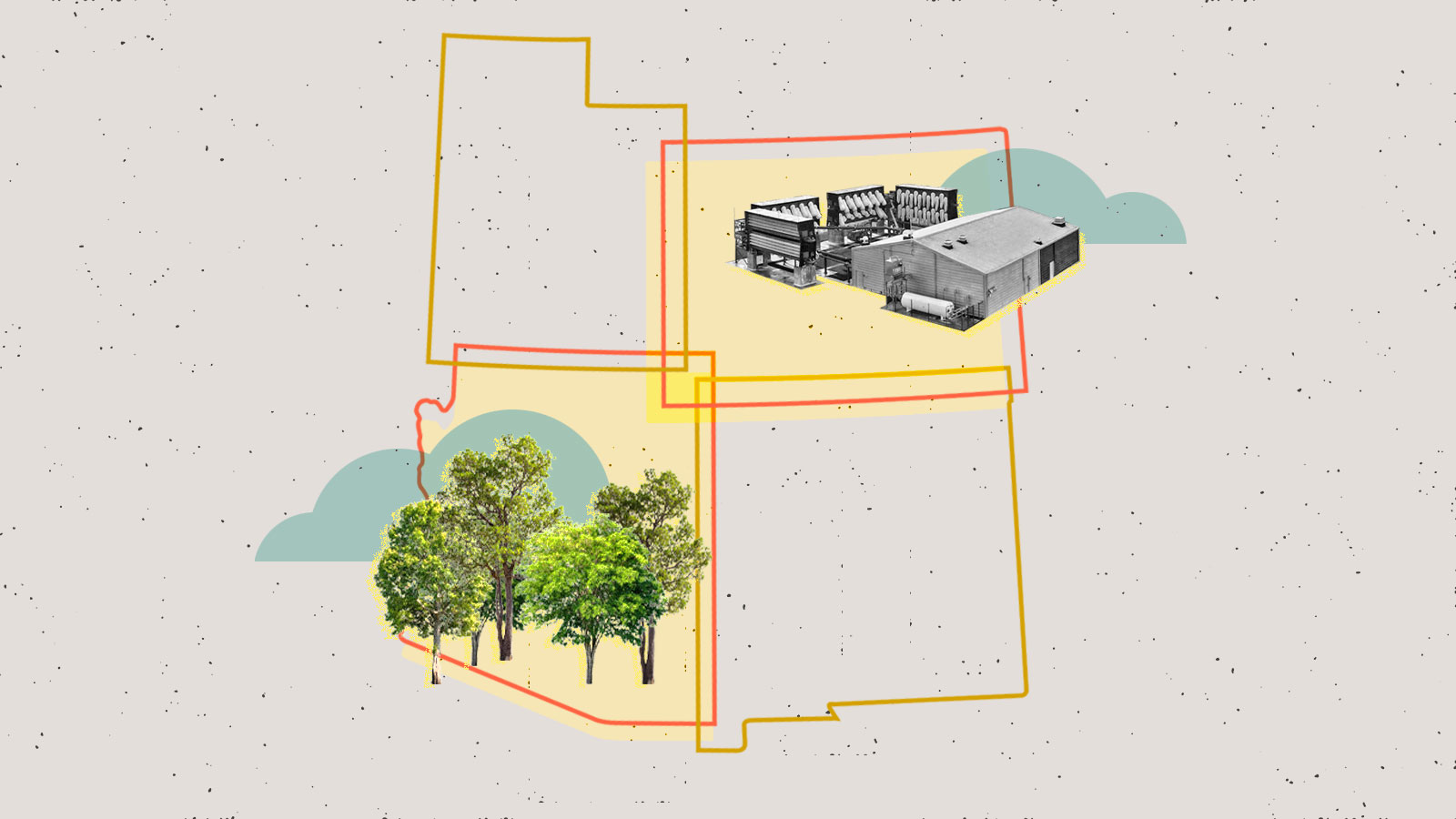Block-Lite is a small concrete manufacturer in an industrial corridor of Flagstaff, Arizona. The third-generation family business makes bricks and other masonry materials for retaining walls, driveways, and landscaping projects. The company was already a local leader in sustainability — in 2020, it became the first manufacturer in Flagstaff to power its operations with on-site solar panels. But now it’s doing something much more ambitious.
On Tuesday, Block-Lite announced a pioneering collaboration with climate tech startups Aircapture and CarbonBuilt to suck carbon dioxide from the atmosphere and stash it in concrete blocks. The companies estimate the project will reduce the carbon footprint of Block-Lite’s products by 70 percent, creating a model they hope could reshape the industry.
Concrete creates an enormous problem for the climate. It’s one of the literal building blocks of society, and it has been growing more carbon intensive each year. Most of that carbon doesn’t come from manufacturing concrete, but from the production of its main ingredient, cement. Cement production is responsible for some 10 percent of industrial carbon emissions in the U.S.
CarbonBuilt has developed a solution that addresses the issue in two distinct ways. First, the company found a proprietary way to replace cement with a mix of inexpensive, locally-sourced industrial waste materials. CEO Rahul Shendure told Grist they include common byproducts of coal plants, steelmaking, and chemical production that would, for the most part, otherwise be destined for landfills. The company’s second feat is the way its equipment hardens that slurry into concrete blocks — by curing it with carbon dioxide. That’s where Aircapture comes in. The company will build one of its machines which extract carbon dioxide from the ambient air directly on Block-Lite’s site.
“Our technology is pretty flexible in where we source CO2 from,” said Shendure. “The thing that’s different about this project in particular is that we’re sourcing the carbon dioxide from direct air capture technology.”

It’s an idea that a handful of other companies are pursuing. In February, a similar partnership between another direct air capture company called Heirloom and concrete startup CarbonCure demonstrated its process for the first time. This also isn’t CarbonBuilt’s first project — the company is retrofitting a concrete plant in Alabama called Blair Block. In that case, the CO2 will come from burning biomass in a boiler.
The Flagstaff project is breaking ground, in part, thanks to a $150,000 grant from the Four Corners Carbon Coalition, a group of local governments throughout the Southwest that pool resources to finance projects that remove carbon dioxide from the atmosphere. The coalition was born of the realization that communities with ambitious goals to become carbon neutral will likely need to invest in such solutions, many of which are still embryonic.
“If one local government tries to do this on their own, it’s gonna be extremely costly and time intensive, and we don’t have the technical expertise,” Susie Strife, the sustainability director for Boulder County, Colorado, a founding member of the coalition, said in an interview with Grist last year. “We’re trying to aggregate resources and create a sort of a local government platform for carbon dioxide removal.”
In addition to that funding, Shendure said the company plans to sell carbon credits for the CO2 that Aircapture’s equipment pulls out of the atmosphere, as well as for the carbon reductions from using less cement. “We’ve got a letter of intent from a buyer and that’s going to be critical to this project,” he said. “There’s a lot of companies right now that are paying premium credit prices for emerging technologies so that we get more of these out there in the real world.”
Block-Lite did not respond to Grist’s inquiry, but in a press release, the company suggested that the new concrete products would be no costlier than its current offerings. “All too often sustainable building materials require a trade off between cost and performance, but what is unique about this project is that there’s no ‘green premium.’” Block-Lite said. “We’re going to be able to produce on-spec, ultra-low carbon blocks at price parity with traditional blocks which should speed adoption and impact.”




